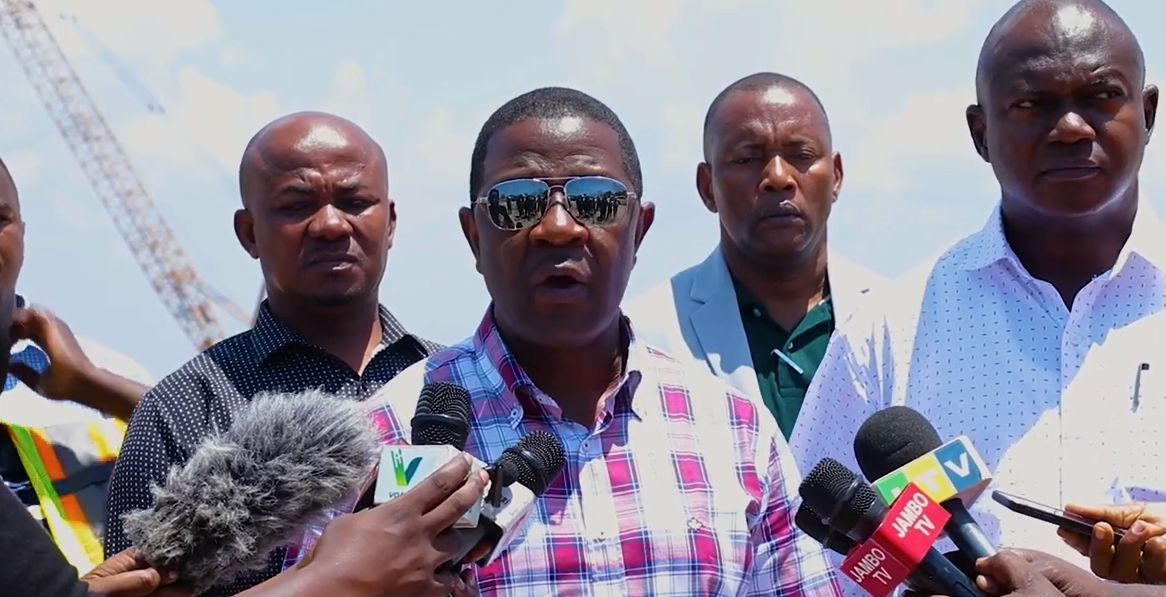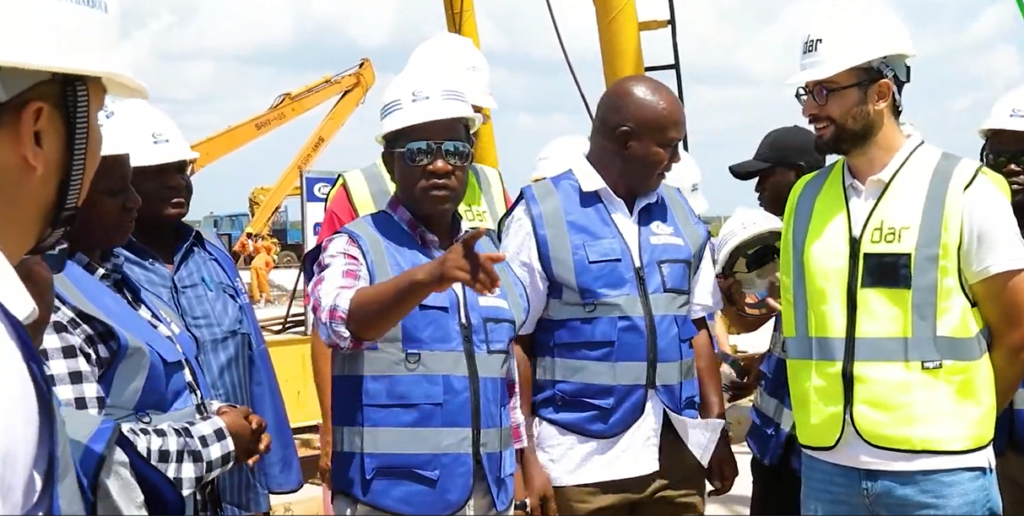
Fresh from the successes of the AGRF Summit in Dar es Salaam, President Dr. Samia Suluhu Hassan is pivoting Tanzania towards a transformative chapter in its blue economy. Minister for Livestock and Fisheries, Abdalla Ulega, elaborated on this ambitious project, underscoring Tanzania’s commitment to food system reform and development.
President Dr. Samia is leading the East African food powerhouse into a massive investment project in the fisheries sector, underpinning her political will and commitment to sustainable food system reform and development.
According to Minister for Livestock and Fisheries, Mr Abdalla Ulega, the East African nation is poised for a substantial leap in the fisheries sector under the leadership of President Dr. Samia.
“September 19, 2023, is the day when the President of the United Republic of Tanzania, Dr. Samia Suluhu Hassan, will write a new chapter in the fisheries sector by launching the construction of the Kilwa Masoko Fishing Port,” Minister Ulega, said.
The major highlight of this monumental initiative is the construction of a new fishing port in Kilwa Masoko. This ambitious project aims to significantly boost the fishing sector and reshape the landscape of Tanzanian fisheries.
“The construction of the fishing port will create employment for over 30,000 Tanzanians and introduce new technology, knowledge, and expertise,” said Ulega. Additionally, it’s estimated that the fishing industry in Tanzania employs over 5 million, including fishermen, boat repairers, net sewers, and small-scale fish traders, further emphasizing the importance of such an initiative.
Minister Ulega noted: “We are creating a new chapter in our nation’s development,” he said. The government’s vision for the fisheries sector is comprehensive; aiming to increase its contribution to the national GDP from the current 1.8% to 10% by 2036.
This ambitious vision is evident in the budget allocation. “For the 2023-2024 fiscal year, the Ministry has been granted a total of TZS 295 billion, a remarkable increase from the previous year’s TZS 176 billion budget,” Ulega shared. This level of investment reveals the unwavering commitment of President Hassan’s administration to ensure sustainable growth in sectors like fisheries and livestock.
He said another feather in the cap is the introduction of modern fishing boats, equipped with advanced GPS and Fishfinder technology, which will be instrumental in guiding fishermen to abundant fishing zones. These boats, which range from 5 meters to 14 meters in size, will have a storage capacity of up to 1.5 tons, depending on the size.
In a commendable effort to promote gender inclusivity, special provisions have been made for women, particularly seaweed farmers. They will be provided with 5-meter boats to ease their farming operations.
Ulega emphasized the transparency of the initiative. “A public announcement will detail the criteria for fishermen and stakeholders involved in the fisheries value chain to benefit from these resources,” he said. The beneficiaries will be verified at the village and council levels to ensure that genuine stakeholders reap the benefits.
The Minister said President Dr. Samia Suluhu Hassan is not just an investment in infrastructure but wants to see socio-economic development for all Tanzanians.
The minister said that the fisheries sector is one of the most important sectors in the Tanzanian economy, providing food security, employment, and income for millions of people.
The minister said the President was aware that the fisheries sector is even more important to coastal communities in Tanzania. “For many of these communities, fishing is the primary source of income and food. Harnessing the boundless potential of capture fisheries and aquaculture is our pledge, promising jobs, wealth, and food security for our people. Our goal is clear: to elevate these subsectors as pillars of our nation’s economic growth.” – Minister Ulega said.
“The Fisheries Sector Master Plan (2021/22–2036/37) is more than just a document; it’s our roadmap. Using the treasures of our waters, we’re aiming for job creation, food security, and an economic renaissance powered by capture fisheries and aquaculture.” – Minister Abdalla Ulega.
Tanzania’s Fisheries Sector Master Plan (2021/22–2036/37) is an ambitious blueprint that aims to reshape and invigorate the country’s fisheries landscape. Central to its vision is a significant increase in total fish production, with a goal to escalate figures from the current 479,311 tonnes to a staggering 1 million tonnes by 2037. In parallel, the plan seeks to amplify the role of aquaculture in the sector, aiming to expand its contribution from the present 4% of total fish production to an impressive 20%.
Recognizing the pitfalls in the existing supply chain, efforts are directed to curtail post-harvest losses from a concerning 25% to a more manageable 15%. Furthermore, with an eye on global markets, there is a strategic move to quintuple the value of fish exports from US$100 million to a robust US$500 million. Beyond the economic implications, the master plan also carries the promise of socio-economic upliftment, aiming to create a substantial 1 million new job opportunities within the sector.
___
Notes to the editors
*Under the leadership of President Dr. Samia Suluhu Hassan, Tanzania is committed to the growth and development of the blue economy. The construction of the Kilwa Masoko Fishing Port, set to launch on September 19, 2023.
*The port construction is projected to provide employment for 30,000 Tanzanians.
The overall fishing industry in Tanzania currently provides jobs for over 5 million individuals, highlighting the sector’s significance.
The government aims to raise the fisheries sector’s contribution to national GDP from 1.8% to 10% by 2036.
*The 2023-2024 fiscal budget for the Ministry is TZS 295 billion, marking a substantial increment from the previous year’s TZS 176 billion.
*The introduction of modern fishing boats with advanced GPS and Fishfinder tech to direct fishermen to lucrative fishing areas. Boat sizes will vary from 5 meters to 14 meters, with a storage capacity of up to 1.5 tons depending on the size.
*Specific provisions are being made for women, especially seaweed farmers. They will receive 5-meter boats to streamline their farming processes.
*There will be a public announcement detailing the criteria for fishermen and stakeholders in the fisheries value chain to benefit from these resources.
Verification of beneficiaries will take place at village and council levels to ensure only genuine stakeholders gain.
*President Hassan’s focus goes beyond mere infrastructure; she envisions socio-economic development for all Tanzanians.
*Minister Ulega underlines the fisheries sector’s significance in the Tanzanian economy, especially its role in food security, employment, and income generation.
*Minister Ulega describes the Fisheries Sector Master Plan (2021/22–2036/37) as a roadmap, not just a document.
*The plan is ambitious, intending to increase fish production to 1 million tonnes by 2037 and elevate the role of aquaculture from 4% to 20%.There’s also a focus on reducing post-harvest losses and exponentially growing the value of fish exports.
End

